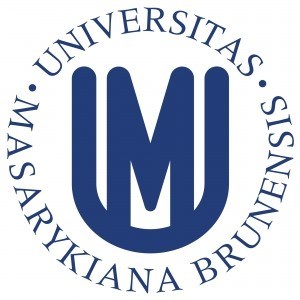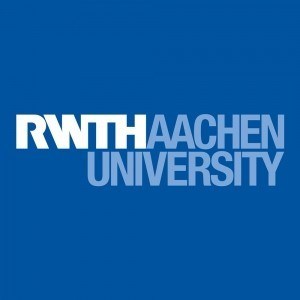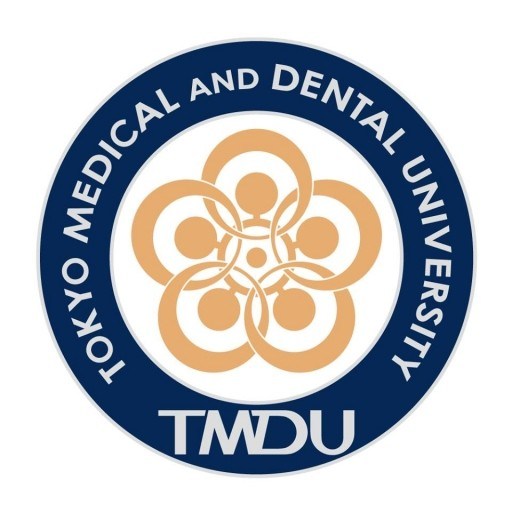Photos of university / #muni_cz
The Dentistry Bachelor's Degree programme at Masaryk University is a comprehensive undergraduate course designed to prepare students for a professional career in dental medicine. This programme provides students with a solid foundation in the scientific and clinical aspects of dentistry, combining theoretical knowledge with practical skills essential for effective patient care. Over the course of the programme, students delve into subjects such as anatomy, biochemistry, physiology, pathology, oral microbiology, and dental materials. They also gain extensive hands-on experience through practical training in university clinics and simulated environments, allowing them to develop proficiency in dental diagnostics, treatment planning, and the execution of various dental procedures. The curriculum emphasizes the importance of patient communication, ethical practice, and evidence-based dentistry, ensuring graduates are well-equipped to address the diverse oral health needs of their future patients.
Students also have opportunities to learn about the latest advances in dental technology, digital imaging, and minimally invasive techniques, reflecting the rapidly evolving nature of dental medicine. The programme emphasizes interdisciplinary collaboration, encouraging students to integrate knowledge from related fields such as medicine, pediatrics, and prosthodontics to provide holistic care. As part of their education, students engage in research activities and attend lectures and seminars led by experienced faculty and visiting specialists, fostering a dynamic learning environment. Upon successful completion of the programme, graduates are awarded a Bachelor's degree in Dentistry (or equivalent), qualifying them to pursue further specialization or to register for postgraduate studies in dental medicine. The programme at Masaryk University aims to produce competent, compassionate, and innovative dental practitioners who can serve diverse communities with professionalism and dedication.
Programme Description
The Dentistry programme at Masaryk University is a comprehensive and rigorous educational pathway designed to prepare students for a successful career in dental medicine. The curriculum provides students with extensive theoretical knowledge and practical skills essential for diagnosing, preventing, and treating a wide range of oral health issues. The programme emphasizes an integrated approach to dental care, combining modern technological innovations with traditional dental practices to ensure students are well-equipped to serve diverse patient needs.
Throughout the course, students delve into fundamental sciences such as anatomy, physiology, biochemistry, and microbiology, establishing a solid foundation for understanding oral health and disease. The curriculum progresses towards specialized topics including operative dentistry, prosthodontics, orthodontics, periodontology, endodontics, oral surgery, radiology, and pediatric dentistry. This multidisciplinary approach ensures students gain a holistic understanding of dental medicine and the interconnectedness of oral health with overall wellbeing.
Hands-on training is a core component of the programme, with students gaining practical experience in well-equipped clinical settings under expert supervision. This practical education is complemented by modern simulation labs, dental workshops, and internships in affiliated hospitals and dental clinics. Such experiential learning enables students to develop essential clinical skills, patient communication abilities, and ethical professional conduct.
In addition to clinical competencies, the programme places a strong emphasis on research, critical thinking, and lifelong learning. Students are encouraged to participate in research projects, attend seminars, and stay informed about advances in dental science and technology. The curriculum also covers topics related to dental ethics, health policy, and public health, preparing graduates for leadership roles in the dental profession and healthcare system.
The Dentistry programme at Masaryk University aims to produce competent, compassionate, and innovative dental practitioners capable of delivering high-quality oral healthcare. Graduates are well-prepared to pursue specialization, postgraduate studies, or to enter clinical practice directly. With a strong focus on patient-centered care, cutting-edge technology, and continuous education, the programme fosters the development of skilled professionals who contribute to the improvement of oral health outcomes both locally and internationally.
Program requirements for the Dentistry programme at Masaryk University include a completion of secondary education or an equivalent qualification, demonstrating a solid foundation in sciences such as biology and chemistry. Applicants must pass an entrance examination which assesses knowledge in biology, chemistry, and physics, along with language proficiency in English or Czech, depending on the chosen language track. Prior relevant experience in healthcare or dental fields may be advantageous but not mandatory. The programme also requires that applicants meet health and fitness standards necessary for clinical studies, including vaccination against certain infectious diseases and overall physical condition suitable for dental practice. Candidates should submit a completed application form, certified copies of their high school diploma, transcripts, and proof of language proficiency. The selection process is competitive and based on academic performance, entrance exam results, and, where applicable, an interview. International students must provide validation of their previous education and language skills according to university and governmental regulations. The programme aims to produce qualified dental practitioners equipped with theoretical knowledge, practical skills, and ethical understanding essential for patient care. It emphasizes a multidisciplinary approach, combining classical dentistry education with modern technological advancements. Additional requirements may include a motivation letter and references, demonstrating the applicant’s commitment to the profession. Applicants are advised to review the specific criteria published on the university’s official admissions webpage and ensure all documentation is submitted before deadlines. The university may also require health insurance coverage valid in the Czech Republic for the duration of the studies. Compliance with these requirements is essential for admission into the Dentistry programme at Masaryk University, which prepares students for careers in dental medicine, emphasizing both academic excellence and practical competence in a clinical setting.
Financing of the Dentistry program at Masaryk University is designed to provide students with various options to cover the costs associated with their studies. The primary source of funding for full-time students is the state-funded place, which does not require tuition fees for Czech and other EU/EEA students, as per the regulations of the Czech Republic’s education funding system. These students benefit from tuition fee exemptions, making the cost of education more accessible. However, students from non-EU countries may be subject to tuition fees, which vary depending on the year of study and are set by the university's regulations.
In addition to state funding and tuition fees, students can finance their studies through scholarships offered by Masaryk University or external organizations. These scholarships are often awarded based on academic performance, social need, or specific criteria related to the student’s country of origin. The university also provides financial aid options such as student loans, which students can utilize to cover living expenses and other costs not covered by scholarships or grants.
Students are encouraged to seek part-time employment opportunities during their studies to supplement their income. The university’s career center offers guidance and job placement services to help students find suitable part-time work that complies with visa regulations for international students. Furthermore, students should consider living costs in Brno, which are relatively affordable compared to other European cities, helping to reduce overall financial burdens.
International students are advised to prepare a financial plan that includes tuition fees, accommodation, health insurance, and personal expenses. The university recommends acquiring comprehensive health insurance coverage, which is mandatory for international students and can be financed through personal funds or specific insurance plans available in their home countries or in the Czech Republic.
Overall, financing studies at Masaryk University’s Dentistry program involves a combination of state-supported funding (where applicable), scholarships, loans, part-time work, and personal savings. The university continuously works to expand financial support options for students to enable them to focus on their education and professional development without undue financial strain. Students are encouraged to consult official university resources for the most current information on available scholarships, fee structures, and financial aid programs to ensure they are well-prepared financially throughout their studies.
The Dentistry programme at Masaryk University is a comprehensive and rigorous undergraduate course designed to prepare students for a professional career in dental medicine. The programme is structured to provide students with a solid foundation in both the theoretical and practical aspects of oral health, including anatomy, physiology, pathology, and diagnostic techniques. Throughout the course, students gain hands-on experience in dental clinics, developing their clinical skills under the supervision of experienced educators.
The curriculum emphasizes the importance of patient care, ethical standards, and the latest advances in dental technology. Students learn to diagnose, treat, and prevent a wide range of dental and oral diseases, ensuring they are well-equipped to serve diverse patient needs. The programme also integrates interdisciplinary topics such as medical sciences, biomedical engineering, and health promotion, reflecting the multifaceted nature of modern dentistry.
In addition to classroom instruction, the programme includes laboratory work, seminars, workshops, and internships, providing students with practical exposure to real-world dental practice. Masaryk University leverages state-of-the-art dental facilities and modern dental equipment, ensuring students are familiar with contemporary tools and techniques. Emphasis is placed on developing precise manual skills essential for dental procedures.
The programme is designed to meet European standards for dental education and prepares students to take licensing exams required to practice dentistry in the Czech Republic and other countries. Graduates are prepared for careers in private practice, public health, research, and academia. The university also offers opportunities for further specialization and postgraduate studies in various fields of dental medicine.
Language of instruction is primarily Czech, with some courses potentially offered in English to accommodate international students. The programme fosters a multidimensional approach to dental education, promoting lifelong learning and continuous professional development. Overall, the Dentistry programme at Masaryk University aims to produce competent, ethically responsible, and compassionate dental professionals capable of contributing significantly to oral health care.






